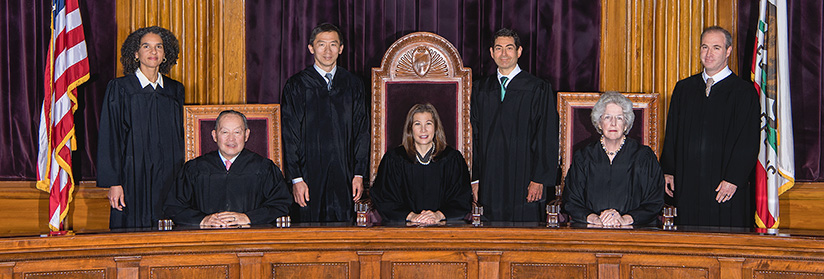
California Supreme Court Justices (courts.ca.gov)
In Defense of AB 5
AB 5 was a legislative response to the California Supreme Court’s Dynamex decision
By Chris Micheli, April 7, 2021 2:30 am
While I am not a fan of California’s approach to the classification of workers in this state, I feel an obligation to correct the misunderstanding that continues to be perpetuated about AB 5 and its impact on independent contractors.
AB 5 was a legislative response to the California Supreme Court’s Dynamex decision. It was actually that court decision that adversely impacted independent contractors in this state, rather than AB 5. This is a key misunderstanding that the public has.
For the uninitiated, the Court’s Dynamex decision was unanimous, which means that all seven justices imposed the “ABC Test” on California’s employers and workers. Some of us believe the Court could have easily decided Dynamex under the Borello factors without the need to impose the ABC Test, but that is not what our high court chose to do.
First, some argue that AB 5 expanded Dynamex because the decision dealt with only with the transportation sector Wage Order. However, this view fails to recognize that all the other remaining Wage Orders use the same exact language at issue in Dynamex. That means that every other industry would be treated the same under the Dynamex decision because the Court would not interpret it differently for other industries.
The second argument is that Dynamex was limited to the Wage Orders and AB 5 expanded the ABC Test to workers’ compensation and unemployment insurance. While that is true, if a worker is an employee under the Wage Order, state law requires an employee to be covered by workers’ compensation. It is unrealistic to think a business could have an employee for wage and hour purposes (under the Wage Order), but the same person would be an independent contractor for workers’ compensation purposes.
Third, the same logic applies to unemployment insurance coverage. Again, a business would not have an employee for wage and hour purposes and then claim that the employee is an independent contractor and should not receive unemployment insurance. The point here is that, while AB 5 did expand the reach of the Dynamex decision, it would logically be applied to workers’ compensation and unemployment insurance.
Fourth, once again, the same applies to the Labor Code. While AB 5 expanded the Dynamex decision to all of the Labor Code, the Court would likely get there anyways because the requirements contained in the Wage Orders are partly duplicative of provisions of the Labor Code, such as meal periods and rest breaks, overtime, etc.
Finally, AB 5 did codify the Dynamex decision, but it was already the law of the land. Incidentally, AB 5 made several provisions (e.g., unemployment insurance) prospective. That was of benefit to the business community. In addition, both AB 5 and subsequent legislation, AB 2257, codified over 100 professions that are now exempt from the ABC Test and therefore still subject to the Borello factors.
As a result, critics are unfairly portraying AB 5 as precluding independent contractors in this state. However, it is not AB 5 that did so; rather, it is the Dynamex decision. This is not to say that the Legislature should not continue to add more professions to the list of exemptions from the ABC Test. The Legislature should even look at loosening the unforgiving 3-part test. And, in light of a recent Supreme Court decision, the Legislature should also protect businesses from retroactive liability.
- Relations of LLC Members and Managers - February 24, 2026
- This Is an Interesting Limit on Rulemaking Power - February 23, 2026
- Miscellaneous Civil Action Proceedings - February 23, 2026




